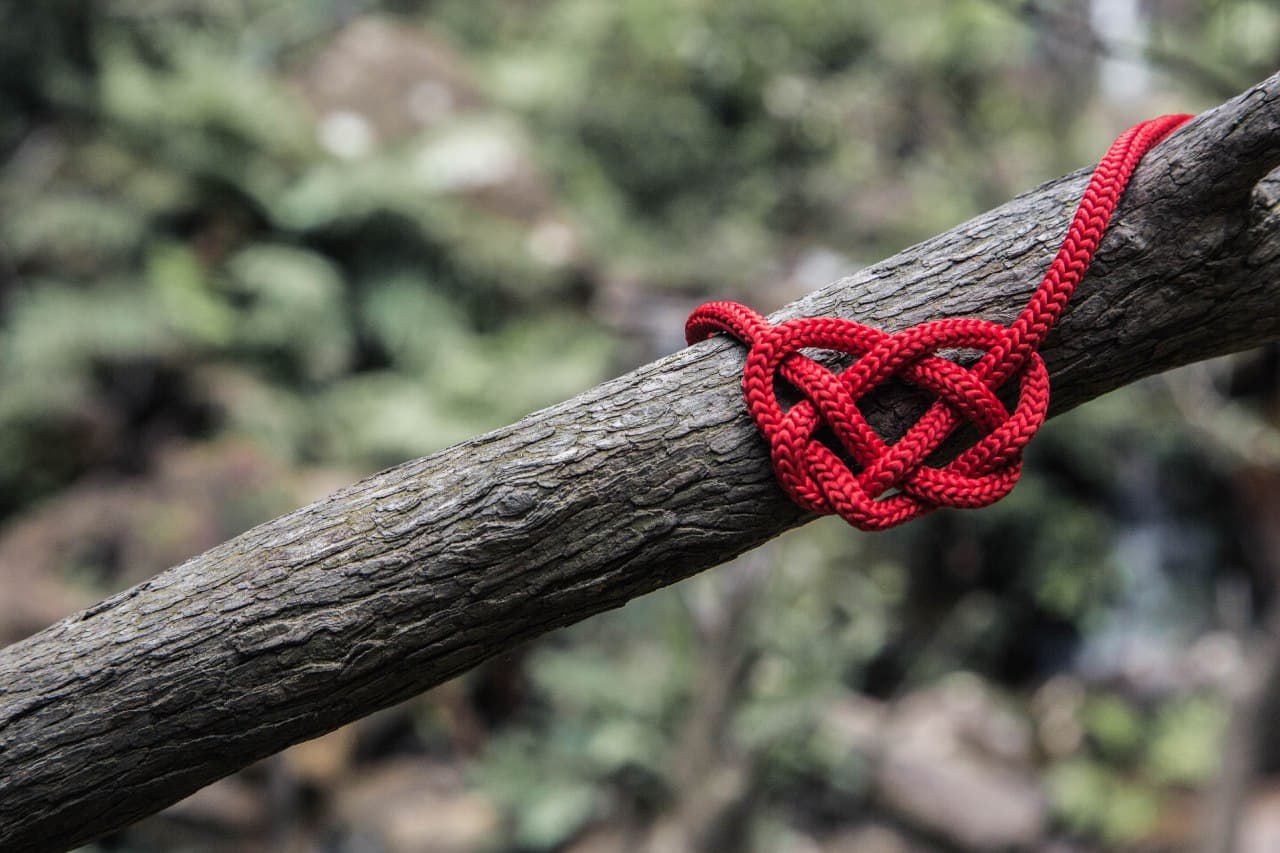Muslims Down Under had the privilege of speaking with Senator Fatima Payman. Senator Payman is the first hijab-wearing Muslim woman in the federal Australian Parliament. Elected to the Senate for Western Australia, in 2022, Senator Payman originally migrated from Afghanistan to Australia in 1999, and since then has been serving her community in various capacities and leadership positions. Elected at age 27, she is one of the youngest Senators in Australian history. This is a transcript from portions of this interview. Click below to listen to the full interview.
Rabia: Today we have the privilege and honor to be sitting in the Australian Parliament House in the Australian Capital Territory. I wish to acknowledge the traditional custodians of the land we are meeting on, The Ngunnawal and Ngambri peoples; I wish to acknowledge and respect their continuing culture and the contribution they make to the life of this city and this region…
Today, we have an exciting podcast. We have the privilege to spend some time with Senator Fatima Payman. Fatima Payman is a Senator for Western Australia, who began her term this year as the Australian Parliament’s first hijab-wearing Muslim woman, and also the current youngest Senator serving Australia.
This conversation is very timely considering Senator Payman has just made her first speech recently, right here in the Australian Parliament House. And what a brilliant and powerful first speech that was! As a hijab-wearing Muslim, I am a fan girl and inspired by your resilience, your confidence, and how true you have remained to your roots and being a Muslim.
Assalamo Alaikum, Peace be upon you, and welcome to the podcast!
Senator Fatima Payman: Walaikum-Salam, thank you so much for having me, Rabia.
Thank you for the wonderful introduction that was really kind of you, and I too acknowledge the Ngunnawal and Ngambri Elders, on the lands that we meet upon as the true custodians and owners of Country. It’s fantastic that you guys have such an awesome podcast running. Being the current youngest Senator has been such an interesting, hectic but humbling experience so far, and it’s just truly an honor and privilege.
Rabia: I am definitely inspired and I think since you did your first speech and it’s sitting in my head. I have to admit, I have watched it a few times ’cause I was waiting for the day I can see someone who looks like me standing in the Parliament House, it is truly an honor, and I was very inspired by your story. So just to start off briefly, can you share with us a little bit about your life and your background and how you’ve reached here today?
Senator Fatima Payman: So, it’s quite a long story, but I think going back to when my dad decided on coming to Australia so that my siblings and I could have a future that he wouldn’t have back in Afghanistan, a country that’s torn by war and decades of destruction.
If my dad hadn’t sacrificed and risked his life I probably wouldn’t be where I am today. But the journey started in 1999, my dad arrived in Perth and from then on worked tirelessly and in 2003 was able to sponsor my mum, myself, and my two other siblings and as we started to build our home, you do have that sense of reunion with the family, that sense of belonging is established immediately, even if it’s, a foreign country that you’ve just arrived at. You grow up, especially as a Muslim, I was lucky to be in an Islamic school and be surrounded by similar cultures as mine and people who would wear the hijab during school hours, and I remember the adamant, persistence I had upon my parents to let me wear the hijab at the end of year six. I felt like the odd one out of my friends. They were all wearing hijabs outside of school and both my parents were like, ‘you’re a bit too young’…‘take your time’.
And, I remember my dad telling me, look, the hijab is such a symbolic part of your identity that I don’t want you to wear it today and then take it off tomorrow. So I’d rather you take your time, make that firm decision, and understand the value of why you’re wearing the hijab. And wear it with pride and take your time in making that decision rather than rushing in haste and then realising it’s too soon for me and then taking it off.. That stuck with me and I never thought twice about wearing my hijab.… I guess throughout that journey of trying to fit in, I think we underestimate the struggles of, young Muslims, especially those from within different diaspora communities, their struggles of adjusting and fitting into society and wanting to be part of that contribution, wanting to be part of that Australian society that we know it to be – that modern-day Australia. It’s just been an interesting up and down experience to where I am today, whether it’s been through the challenges I faced with racism and discrimination where people make comments like ‘go back to where you came from’, that is too common and often heard by many Muslim Australians and people of colour.
Rabia: As a Hijab-wearing Muslim myself, I’m also within the professional space and I definitely relate with a lot of the things that you just said about discrimination. Unfortunately, it is unfortunate that we have to even talk about the fact that we did go through that. There is also this misconception that we experience, as Muslim women, whether we wear the hijab or not, there’s a misconception that we experience limitations and restrictions in life, especially when it comes to things like our career or getting an education.
Now you’ve been brought up with true Islamic values and I have to, take my hats off to your parents as well because I did tear up a little bit when I did watch your speech because it’s just the support and the upbringing is pretty much what’s what resonates and what truly is Islamic.
And you also shared a saying of the Holy Prophet Muhammad, peace be upon him, which your father shared with you, which is to seek knowledge from the cradle to the grave, emphasising the importance of education. It was very rare to see women getting educated, let alone choosing careers as an engineer, or like, myself as a Lawyer, or like yourself, a Senator. So, how did you choose this career, and did you ever feel that Islam or your religion, your faith, ever held you back?
Senator Fatima Payman: No, so I think the credit goes to my parents, in terms of the upbringing I never had that sense of double standards. I’ve got two younger brothers and there’s me and my sister, and they were completely equal in the treatment of their boys to their girls. Having that opportunity to go out there and seek not only a solid education at an Islamic college, but also move on, then to do a degree that I was passionate about, that was anthropology and sociology. I think it was the experience that I had growing up, but also seeing the challenges my dad went through as a migrant worker, with English being his second language, and just understanding the complexities of having those intersectional identities that steered me towards leadership.
Leadership wasn’t a concept that was unfamiliar to me because I was the teacher’s pet and student counsellor and head girl back in school. But it was an avenue that I felt most comfortable pursuing. So whether it was being a Muslim Student Association President for two years at university or it was running a charity organisation and establishing the Perth base or whether it was just being a youth representative through Edmund Rice Center or the WA Police Muslim Community Advisory Board, these were avenues where I could express myself and be that voice for young people.
Because our young people are often left out of the conversation, we are neglected. We slip through the cracks. Our voices aren’t heard where it matters most, and politics wasn’t the first thing on my mind… Leadership and politics are my way of serving humanity, and I think it is so important to value both professions and every other profession that we’re leading the way, inspiring our youth and saying, look, if I could do it, so can you, and in my particular case, I just wanted that sense of belonging. And I think the Labour Party and Young Labor gave me that platform where I met with young people who resonated, shared the same values of camaraderie or fairness, equality, fighting for social justice, wanting change, action around climate change, wanting to see that diversity in society and that multiculturalism.
For us to embrace it and not just throw it around like confetti – that we are a multicultural nation – what are we doing about it, are we really immersing ourselves in understanding one another? There is the aya (verse) in the Quran that talks about being made from different nations and tribes so that you get to know one another. That is the whole purpose and essence of life, to get to know one another. To use our differences and seek wisdom in those differences and use our similarities to strengthen ourselves and move on as a nation and progress ourselves. Politics was not always the number one option, but here we are today.
Rabia: Like we say, God, Allah, does things for a reason. You are the right person to be representing us. You’re resilience and confidence and also the fact that you are just true to your faith; you have pursued this career without compromising that and you didn’t feel the need to compromise it and I think that just sort of goes hand in hand with the fact that we can still be Muslim and still pursue careers and serve our country, which is Australia.
The other side to it is this whole idea of loyalty to country is part of faith which we have been taught by Prophet Muhammad, peace be upon him. He also discusses the idea of loyalty and how it’s so important to faith. We all serve in different capacities, and I think it’s really important that we, inspire younger girls, younger Muslim girls, I should say, to move into careers that serve mankind in whatever way, even if it is being a doctor or an engineer. And that leads me to the question, in your speech you did make many praises and comments about how blessed and grateful we should be to be here in Australia. And as Muslims serving our country is the root of this, whether it’s in civil society, or working in these professional capacities. We are here to show that Muslim women are integrated, we don’t have any secret agenda! What are your thoughts on this? Can we still be Muslim and still be loyal to our country?
Senator Fatima Payman: 100%. Islam is fundamentally based on service, whether it’s service, to mankind, whether it’s serving your Creator, whether it’s serving your parents, whether it’s serving your community. We’re based on service and I don’t know which exact ayat (verse), but we are instructed to order and obey the laws of the land. We have migrated from our home countries, our Muslim home countries, to seek knowledge. Which is permissible, but what are we doing with the opportunities that are laid in front of us or the opportunities that end up with doors opening up for us?
I think with the Muslim youth and the Muslim community, the evolution hasn’t happened, as much as we’d want it to, and when I say evolution, it’s about accepting themselves as Australians and saying, ‘you know what, I am contributing to the progression of this country!’
It’s part and parcel of a harmonious society, right? We can ask and seek for multicultural representation, but if we’re not doing anything about it within our own communities and we’re not empowering our women, we’re not empowering our men, we say we want Muslim women, we also want people of all walks of life and all especially culturally and linguistically diverse backgrounds to get involved in that space and it’s all based on merit. It’s not tokenism that we’re talking about here. It’s not – Fatima got selected as the third Labor Senator because she’s a hijabi. There are thousands of hijabis out there, right? It’s ensuring you align with the values, but also that you have the drive and motivation to pursue that career. It’s finding those people who are thriving, who are learning, who are keen, in that space and allowing them and providing them those platforms to really immerse themselves and that’s how I got introduced and that’s something I will continue working on in my terms as Senator for the next 6 years, to ensure that I am that accessible politician that anyone can relate to but at the same time anyone can have a chat. I’m not someone that has thousands of barriers you have to cross to get to me. I want to give back to the community that has given me so much.
…Talking about resilience, it’s not easy. And yes, sometimes we Muslims think, oh, why do I have to work that extra bit harder? We find ourselves, if I want a job promotion, I have to work twice as hard as another friend of mine or colleague that doesn’t identify as a CALD person.
Well, So what? What is the problem? I mean, we are working hard and perhaps it’s about putting ourselves in those positions where we’ve got the influence but are we encouraging those who are following in our footsteps to be like I am mentoring you, I’ve had it tough I may have had challenges that you can avoid by doing this and this…it’s that cycle of giving back. If I have received so much help, I’m going to give back twice as much.
Rabia: I think, you being here today is an example of you giving back, your passing on your wisdom. The fact that you have this role and there is a misconception there are those barriers to reaching a Senator. The fact that you had opened your doors and welcomed the opportunity to talk to you and discuss this. We need that openness and communication now, especially as a Muslim to the Muslim community who do feel that there are those barriers, and growing up in this sort of society we are still dealing with the aftermaths of unfortunate incidents, whether it be Christchurch or even going back to 9/11 and this idea that, yes we have to kind of prove ourselves a little bit more in the workplace. I’ve had my fair share of that, and it wasn’t easy getting to where I am as a Lawyer, even today.
So, how we can look forward and change that narrative, which is, what we do at Muslims Down Under? Especially for things like radicalisation, which is increasingly become associated with Muslim youth particularly. I really loved the value and importance you placed on how your family has shaped who you are today. They’ve encouraged you to stay true to your roots and also become a respectable member of this society. How, as a young Muslim woman, how have your family values empowered you to be the person you are today? In the context of changing that narrative, what do you think that message would be to perhaps parents, not just of the Muslim community, but those of CALD backgrounds? What do you think the importance of family is, growing up as an Australian now?
Senator Fatima Payman: I think it’s important to acknowledge people who are doing it tough. Maybe they have lost a parent. I definitely know the challenges are so great on my mum, now that my dad is no longer around. So, acknowledging that there are single parents or parents who are widowed out there, who are doing it tough. I appreciate the hard work because I know the stress that our parents place on us. It comes from a good place. They just care about us. They love us so much and they’re so protective of us that sometimes it may come across as them being helicopter parents or, they’re just overbearing, but it’s always good for us to remind ourselves that they are coming from a good place and it’s coming from genuine care. I guess the message to parents is that allowing their children to pursue what they’re passionate about, or what motivates them and drives them, is going to get them far greater results in the long run than it is in the short run.
I know we joke around and say our parents wanted us to be doctors. But we forget the amount of pressure that was on us to actually deliver it, till my parents started seeing me faint at the sight of blood. Can’t go to medicine…pharmacy. What my mum has experienced with me, in particular, is allowing your children to pursue what they’re passionate about or what motivates them is going to get them far greater results in the long run, than it is in the short run. Perhaps your child is going to enter medicine because they’re intelligent and they can, but they’re hearts not there and that’s a disservice to the rest of the community because they’re not there for the right reasons and doing it because they have to.
As someone who was grieving and going through so much anxiety and depression, just not knowing how to handle the loss. But loss is in many forms. I lost my dad, some people can lose jobs, some can lose relationships, and their children.
… Then, there’s gotta be this open dialogue within our communities, we need to prioritise mental health. Yes, we’ve got a huge emphasis on spiritual health and making sure that we pray five times, that we’re steadfast on the deen (religion). But, what are we doing with our children when it comes to their mental health and their emotional health? Because I didn’t grow up talking about emotion. I actually didn’t know the first time I sat with my psychologist, I didn’t know how to describe my feelings. Which, in a way is concerning, because we are going to be the future mothers of generations to come, and if we’re going to hope to nurture leaders. We need to make sure we’ve got the skill sets and that we’re OK when it comes to our mental health.
Rabia: Especially with this idea of keeping the young busy with the right things. You talked a lot about service and participating in extracurricular activities whether it be at a local level, at university…I think it’s the idea that we’re engaging in some way or another in whatever capacity we can. I think each and every aspect is very important so but we definitely resonate with that, and we did a whole podcast on parenting. One of the sponsors is the Ahmadiyya Muslim Community and the worldwide Caliph Hazrat Mirza Masroor Ahmad (may Allah be his Helper), who actually encourages us and says that if mothers are well educated religiously and with secular education, we can save our children.
So Muslims Down Under is a national platform that we’ve developed in response to the guidance from Hazrat Mirza Masroor Ahmad, the Caliph of the Ahmadiyya Muslim Community, as a campaign to provide education and awareness about Islam.
So in my very humble opinion, the fact that you and I, two hijab-wearing Muslim women, one a lawyer, the other a Senator, I think we have definitely evolved over the years especially as we are sitting in the Australian parliament… I would never have envisioned this. I don’t know if you would have.
Senator Fatima Payman: Never in a million years.
Rabia: So, I don’t know if you would have come into Australia at 8 years old, when you were a refugee, would have thought that this would have been possible so I think things are moving positively.
What do you think? Are we moving in the right direction in terms of acceptance, tolerance, and perhaps removing Islamophobia?
Senator Fatima Payman: So in terms of that the broader community, it has definitely shown an appetite for that representation, especially in an institution like the Parliament where we make legislation that impacts the lives of so many Australians. No matter what walk of life you’re from, it is important that you have your voice heard and your voice represented in Parliament, and so seeing the election of so many multicultural MPs and Senators, definitely gives us hope that Australia is moving in the right direction. The onus now is on our communities to actually take that courage and embrace the opportunities of getting involved in whatever shape and form.
I definitely would think that Islamophobia is not as rife as it was a few years ago. And perhaps that infamous senator who wore the burka and called for the ban is no longer even making eye contact with me, even though we’re in the same Chamber sitting opposite each other. But I think people are making more friends. They are seeing individuals and meeting individuals like you and I, and saying, Oh well, you’re not too bad! You’re just like me, you know?…
I just don’t understand why a piece of our attire would make such a difference and will overshadow our contributions. As soon as I was elected and everyone was sensationalising the fact about my hijab and being the first hijab-wearing woman (in Parliament) it was like, alright, I do wear a hijab, but get over it, it’s part of my dress code. It’s just more than that… Do you look at the Prime Minister and say, he is a Prime Minister that wears a jacket…no. We’re more than that. But it’s that discourse and the conversations we are having with our youth so that they’re proud of wearing the hijab! If they choose to wear the hijab, good on you. If you don’t choose to wear the hijab, good on you still. We’re all on our own journey and sometimes it’s tougher than others.
But we all deserve that same respect, and we all deserve that same sense of belonging but also having that freedom to choose what we want to do in life because of the democratic freedoms we enjoy in Australia, which we’re so privileged to have and I think people often underestimate that and I just want to send a massive message out there:
Whoever you are, wherever you’re from, be proud of your identity and roots, because it’s our diversity that brings so much beauty to Australia and don’t let anyone tell you otherwise, because if you’ve accepted Australia as home, Australia has accepted you as an Australian!




